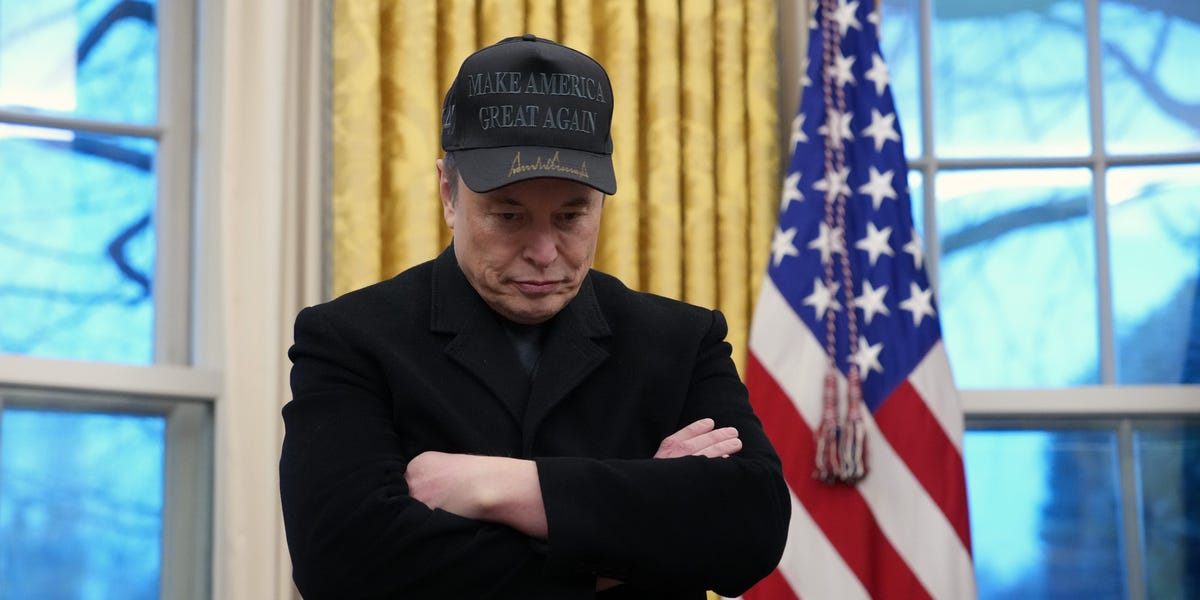
- A recent court document from the White House indicates that Elon Musk does not possess any “actual or formal authority.”
- Technically, Musk is not the head of DOGE, and his job title remains “unlisted,” as previously reported by Business Insider.
- An email addressed to the newly renamed DOGE agency did not specify a leader.
Elon Musk is often referred to as the head of the Department of Government Efficiency (DOGE). However, a recent White House court document states that this assumed leadership role carries “no actual or formal authority to make government decisions independently.”
According to Joshua Fisher, the director of the Office of Administration, “In his capacity as Senior Advisor to the President, Mr. Musk holds no more authority than other senior advisors in the White House. Much like other senior White House advisors, Mr. Musk has no actual or formal power to make government decisions on his own.”
Fisher further elaborated that Musk’s role is similar to that of senior advisor Anita Dunn within President Joe Biden’s administration.
Later that day, former President Trump remarked to reporters that Musk could be referred to in various ways. “To me, Elon is a patriot,” Trump said following a series of executive orders at his Mar-a-Lago estate in Florida. “You could call him an employee, a consultant, or label him however you prefer.”
Musk’s position, based on a White House record, is classified as “unlisted,” as noted by Business Insider. When Trump established DOGE through an executive order, he integrated it into the White House by transitioning the US Digital Service to the US DOGE Service. The order specified that an “administrator” would lead DOGE but did not name the individual in this role.
The court document released on Monday clarifies Musk’s involvement with DOGE beyond doubt. “He is not an employee of the US DOGE Service or the US DOGE Service Temporary Organization,” it states. “Mr. Musk does not hold the position of Administrator within the US DOGE Service.”
An email sent from an account labeled “admin” to USDS staff did not provide clarity on the leadership of the commission. This email, which Business Insider reviewed, informed employees about the requirement to return to in-person work by April 15 but did not reveal who was overseeing the newly branded USDS. The “admin” email was signed simply “US DOGE Service.”
Earlier this month, a White House spokesperson informed BI that Musk was classified as a special government employee, a designation that exempts him from common ethics and conflict-of-interest regulations that apply to federal employees. He will not receive a salary and is limited to a maximum tenure of 130 days per year.
Regardless of his official title—or lack thereof—Musk and DOGE are causing significant changes across the federal government, including eliminating entire agencies and terminating federal staff.
The organizational framework of DOGE holds critical implications beyond how Musk and the agency’s employees conduct their operations.
Katie Miller, a spokesperson for DOGE, stated on X that since the organization is part of the Executive Office of the President, its records fall under the Presidential Records Act. By asserting this, the White House would effectively seal DOGE’s records until at least five years after Trump exits office in 2029.
DOGE is expected to conclude its work by July 4, 2026, aligning with the 250th anniversary of America’s independence.
Representatives from the White House, Musk, and DOGE did not respond to Business Insider’s request for comment.
Jack Newsham contributed to this report.
Do you work at a federal agency? Do you have insights about DOGE to share? Reach out to this reporter at atecotzky@insider.com or contact via Signal at alicetecotzky.05.









